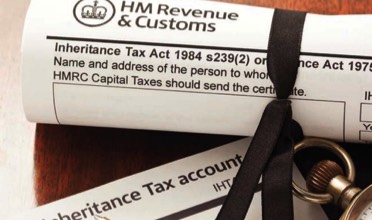TAX
Surrey’s Premier Lifestyle Magazine
Managing tax complications on the death of a loved one
Gillian Everall of Everfair Tax offers guidance to essence readers on the ways to manage tax complications on the death of a partner or parent.

First things first, has the deceased left a will? If not, or if the will is considered invalid, in legal terms this is known as dying intestate, and strict rules govern how an estate may be distributed. Only individuals who are married, or in a civil partnership at the time of death, along with certain close relatives, are able to inherit under the rules of intestacy. Co-habiting partners have no right to inherit. If the deceased has left a will that is not legally binding, the rules of intestacy will determine how the estate is distributed, and not the will itself.
The next step is to consider whether an inheritance tax return is required for the estate, and this would also need to report lifetime gifts. Covering seven years before the date of death, lifetime gifts will include cash and assets gifted by the deceased, along with the sale of any assets which contribute a loss to their estate.
An annual tax return will also need to be completed for the deceased to the date of their death if they traditionally needed to complete one. And the estate will need to file annual tax returns to report income and gains on estate assets until probate is granted and the assets distributed to the beneficiaries.
It is important to ensure that all available allowances and exemptions are used to reduce the inheritance tax liabilities. Currently the first £325,000 of an estate is tax free under the nil rate band exemption, and gifts to a spouse or civil partner are also tax free, with any nil rate band not utilised on the first death being available to the surviving spouse or civil partner.
There is also an option to enter into what is termed a deed of variation under which a beneficiary can redirect their inheritance within two years of the death, providing all beneficiaries of the estate agree. This may be very helpful where a beneficiary has enough assets of their own and can allow them to transfer inheritance to perhaps a discretionary trust for their children.
For help in managing your inheritance tax planning or a loved one’s tax liabilities, please call Everfair’s friendly team on 01932 320800, email info@everfairtax.co.uk, or visit the website www.everfairtax.co.uk.
essence info
Gillian Everall is Managing Director and Head of Private Client Tax Services for Everfair Tax based in Weybridge. Everfair Tax specialises in UK, US and Expatriate Tax and provides a unique tax advisory and compliance service to help manage personal or international complexities and the changing of family or business circumstances.Telephone: 01932 428536
Email: gillian@everfairtax.co.uk
Website: www.everfairtax.co.uk